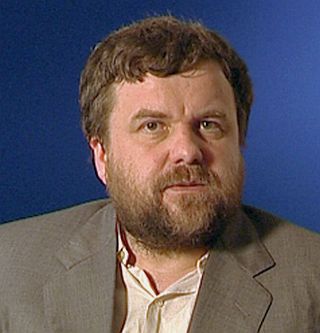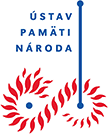Tomáš Konc (1963)

Biography
“I didn’t awaken to peril. I did it just because I was young and avid not only for adventure, but also for truth and justice.”
Tomáš Konc was born on August 24, 1963, in Bratislava in the family with six children. Under the influence of a good upbringing and thanks to the contacts with the Capuchin order, he was from his early childhood decided to dedicate his life to religious belief and later he chose to become a priest. The turn of events in his life came, when he started to smuggle forbidden religious literature from Poland to Czechoslovakia. In December 1983, when he was only a twenty-year-old student, the border guard caught him on the Polish borders along with his friends Branislav Borovský and Alojz Gabaj. He spent three months in Polish prison and was dismissed from studies at the Faculty of Mechanical engineering of the Slovak University of Technology. In March 1985 the court passed the prison sentence on him for “smuggling” and he was serving his sentence in Bratislava prison from March to August 1986. After being released, Tomáš worked as a manual worker and managed to finish the compulsory military service. Then he was accepted to the Charles University in Prague where he started to study math and physics. At the same time he secretly studied theology and in 1994 he underwent the ceremony of ordination. During the period of totalitarian regime reprisals Tomáš Konc experienced not only cruel physical treatment, but also psychological terror and had to face its consequences also many years after being released from prison.
Our Reason for Smuggling
“Another thing we were reproached for was that we could get it legally as well. But my opinion was very different because what could you get legally at that time? Let’s look just at the Katolícke noviny (Catholic News). There were many ridiculous and tendentious articles. And also books published by the association Pacem in Terris were illiberal and scanty as for their content, so that people could learn almost nothing from them. In case that some catechism or hymnbook had been published, all the copies were immediately passed around among friends. Moreover, Bible was sold out as well. It had been published in 1969 but it was absolutely impossible to gain it. And I know that during some previous actions we had brought quite a lot Bibles from Rome.”
Caught Red-handed
“When they finally disappeared, we suddenly saw two members of the border guard following our tracks. They had guns, those short sub-machine guns (probably called scorpions) and went towards us. It was a moment. We were in a small forest, so they couldn’t see us. I don’t know whether it is still there or not, because when I was there twenty years later, I didn’t see that forest there. And then we thought of what to do. Shall we run? Or not? What direction? To our country or to the side of Poland? (We could have followed the Polish traces and run to Poland.) Shall we try to bargain with them? Shouldn’t we? Finally, as we were quite shocked, we did nothing and one of the soldiers used his walkie-talkie to call to the central office and asked them what he had to do with three men with backpacks. After his account they ordered him to bring us to the border station in Poland, because we were supposed to be about one hundred meters away from the Polish borderline.”
Things That Cost Him His Freedom
“These are our religious books, all the pictures and other things we had with us. It was written in our record really punctually even when they made a mistake... This way they counted all our pictures. However, we didn’t know the exact number. But I think it was more or less corresponding. There is written for example: Ut unum sint (May they be one) and they even misrepresented it, they wrote ul unum instead of ut unum. There were books about ecumenism, Marian magazine, Anno Sancto tape (Jubilee holy year 1983), Sunday missal and apostolic exhortation of Pope John Paul II written in Polish. There were also books such as Pred Bohom (In the Sight of God) or Cesta k živej viere (The Way to Vivid Faith). Pútnik na Kalvárii (Pilgrim on the Calvary), Svätý Otec v roku 1981 (Holy Father in the Year 1981) and hymnbook as well… Simply said, there were religious literature and various religious items.”
Behind Bars with Planted “Cellmates”
“It is pretty hard to speak about the State Security investigation methods because they were really sophisticated. After some time it became clear that in prison there were the State Security members themselves who pretended being prisoners, or prisoners who somehow collaborated with the State Security just as agents or quislings. And I could remember one of them in Slovakia. It was a man who pretended being a spy and he was used to speaking foul language for some weeks or months. And he did it all the time, of course. He spoke about meetings with some strange agents and fed us terrible lies. He also talked about very nasty things; he described how party officials and other authorities used to do various indecencies. I couldn’t listen to it. But later when I read the testimonies of our Capuchins from the 1960s, I realized that they had used exactly this method, they simply wanted to dismay us with all that filth or confuse us somehow. And then I recall the day before I was released, when he suddenly asked me very delicately: ‘Well, could you tell me something more about why you are here?’ Because, you know, I didn’t speak with prisoners about my trial at all.”
Crafty Practices of the State Security in the 1980s
“In my opinion, investigation methods of the State Security in Slovakia in the 1980s were really objectionable, tough; it wasn’t a bed of roses at all just like people usually think today – they think that Gorbachev changed it. I am convinced that an effort to criminalize all the ordinary activities of religious activists, priests and the like was one of the basic tactical methodical instructions for the State Security in the 1980s. It meant that they criminalized also our desire to bring religious literature to our country and labelled it as smuggling. They projected pastoral work of priests as the desire to be close to children with paedophilic intensions that was another example of criminalization which appeared in 1980s. One of the priests, who were imprisoned for their faith, was accused of it. But I am not sure whether it was Gono or another covert priest.”
I Was Condemned by Myself
“During the investigation I chose the silence as the best way of my self-defence because I thought that this way they wouldn’t be able to establish my guilt and moreover, Branko and Lojzko claimed that they would assume full responsibility for it. Therefore also my lawyer felt joy. The most probably he thought that I would be given just suspended sentence or fully cleared of charge. During the trial I stayed out of the courtroom and my accomplices got me out of that mess. But when I entered the room I felt a huge tension there. Everybody was waiting what I would say. In case I had told that I had nothing in common with it, that I didn’t want any religious literature, that I was there just like a tourist, the most probably I would have been given only suspended sentence or cleared of charge, because they couldn’t sentence me, they couldn’t prove my intention and they didn’t have any testimony or evidence against me. All the witnesses claimed that they didn’t know me. But in my final speech I told them and revealed the facts that I simply wanted religious literature here and I used to bring it to Czechoslovakia as well. And it was all they wanted to hear and this way I simply sentenced myself.”
The story and videoclips of this witness were put together and published thanks to the financial support of EU within the programme Europe for Citizens – Active European Remembrance.

